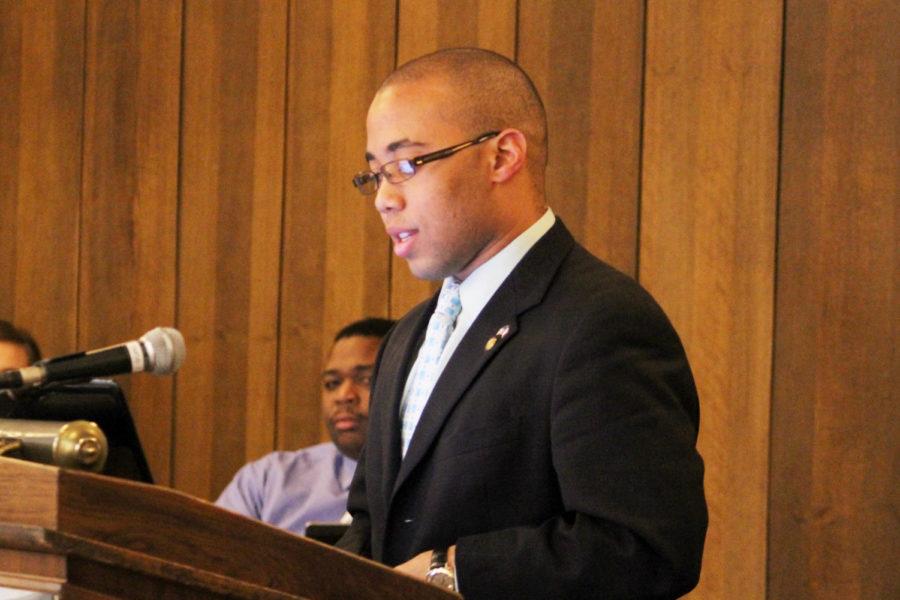GSB discusses specifics of elections
December 4, 2014
At the last senate meeting of the semester, the Government of the Student Body discussed upcoming elections, specifically the election code and President Hillary Kletscher’s veto of a bill.
Alex Rodgers, GSB election commissioner, proposed changes to the Election Code that provides candidates for positions during the 2015-16 academic year with guidelines for their election season, which begins in January.
Rodgers and the election commission proposed an expenditure cap of $1,250 so candidates may not spend any amount over the cap, which the senate later shot down.
Sen. Erick Dietz proposed to amend the bill to take the cap off so candidates could spend however much money they wanted on elections. Dietz said he didn’t think it was appropriate to put a cap on elections because it is each candidate’s personal decision.
Rodgers and senators in favor of the cap said the cap would give all candidates a fair chance at campaigning and fundraising so candidates didn’t “buy” positions.
However, others felt that a cap would be a restriction on free speech because it would limit the tools candidates could use to campaign.
They said the argument that the more posters, advertisements or demonstrations a candidate can fund through their own money does not mean the candidate will be popular enough with students to win the election. Through this reasoning, many said if students wanted to spend thousands of dollars of their own money, “more power to them” because it still would not guarantee them a position.
“I don’t think we can tell people you can’t spend money because these people don’t have money,” said Sen. Abbie Lang.
Lang said though her parents may be wealthy, it doesn’t mean her parents would fund thousands of dollars for her campaign. Therefore, if she wanted to campaign, she would be in the same position as students who did not come from a position of wealth.
“The fact that we are a state university shows that we accept everyone, wealthy and unwealthy,” said Sen. Peter Benzoni. “We’re not Harvard. We don’t have hundreds of students with huge wallets lining up and running for every position, but we have students who are passionate about that.”
Other discussion centered on a Kletcher’s veto of a bill on the Election Timeline, which was vetoed past the six-day period during which bylaws state the executive branch can veto a bill.
Kletcher vetoed the bill because bylaws state that the election commissioner has the power to set the election timeline and senate approval is not needed.
Sen. Khayree Fitten moved to override Kletcher’s veto —which later failed — citing the bylaw that details the six-day period to veto a bill. The bill was passed, Fitten said, the six-day period and the bylaw does not say six business days.
Speaker of the Senate Gabe Walsh said the bylaw interpretation is not so black and white and that the six-day period is designed to give the president ample time to talk with constituents. Since the bill was passed before Thanksgiving Break, there was not time to talk with students.
However, senators said the bylaws would state six business days, or more clarification of the six-day period.
Dan Breitbarth, vice-speaker of the senate also proposed a bill that would require GSB senators to spend an hour each week at a table within Parks Library.
Breitbarth said this bill would solve the problem of not being able to meet with constituents that senators sometimes face. Though students are always welcomed to visit GSB’s office space on the second floor of the MU, students don’t often take advantage of it.
Breibarth said a GSB Library Booth–which Dr. Joyce Garnett, dean of the library already approved–would solve senators problems. Thousands of students come through Parks Library each day, and senators would be more approachable in this space, he said.
The bill will be discussed during next semester’s GSB term.
GSB will resume meetings next semester.







